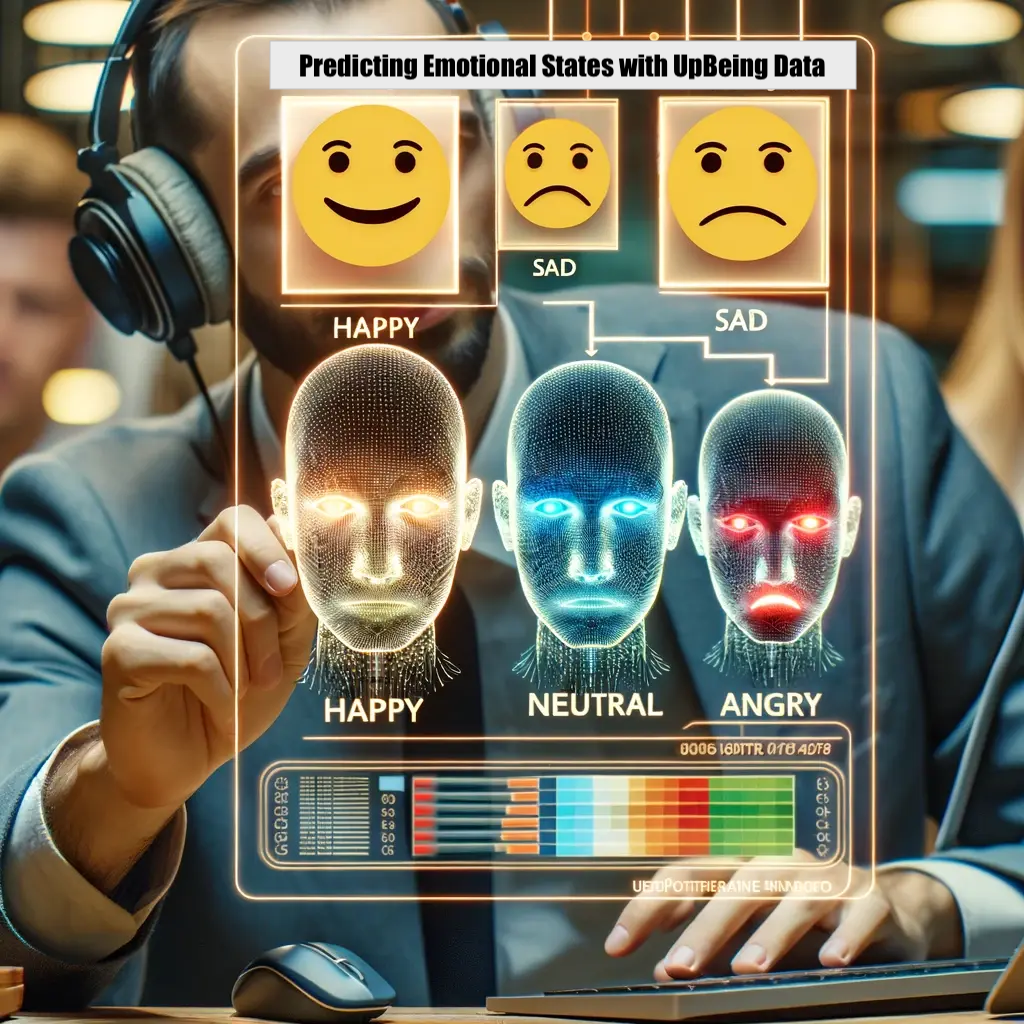
In today’s fast-paced world, emotional well-being is increasingly recognized as a critical aspect of overall health. The increase in mental health issues highlights the need for innovative solutions to monitor and enhance emotional well-being. This research project addresses this need using Artificial Intelligence (AI) to predict emotional states through the UpBeing data. UpBeing is designed to improve emotional intelligence and mental resilience, integrating passive behavioral data with science-based check-ins to show how daily activities affect mental health.
In collaboration with UpBeing, we have started creating a comprehensive data ecosystem that enables the detailed collection and analysis of user data. This initiative paves the way for developing an AI model that can accurately predict users emotional states from their app interactions, offering a groundbreaking method to enhance mental health understanding and promote well-being. We use the LSTM-based modeling approach to predict future emotions based on daily check-in data. This method is particularly suited to the time-series data and the complexity of the inputs, allowing us to capture the nuanced temporal patterns in emotional states. Our deep learning model, designed to predict four distinct mood types (Angry, Sad, Neutral, and Happy), forecasts emotions one day ahead with remarkable accuracy. The model's success, demonstrated by a 99% accuracy rate on training data and 96% on testing data, highlights its potential in real-world applications.
Moving forward, our project will extend its scope to examine how sleep and physical activity data relate to emotional states. We aim to combine these factors to provide a complete picture of how various elements influence emotional well-being. By relating our findings with sleep patterns and physical activity levels, we will gain deeper insights into the comprehensive dynamics of mental health. This expanded analysis will not only improve our understanding of the emotional state prediction model, but also contribute significantly to public health. By identifying the connections between emotional states, sleep quality, and physical activity, we can offer more detailed recommendations to enhance mental wellness. Ultimately, this project aims to build a strong link between individual emotional health and broader public health goals, providing actionable insights that can guide interventions and support strategies to improve mental resilience in the community.
PI: Dr. Plinio Pelegrini Morita
Project members: Dr. Jasleen Kaur, Ayan Dogra, Navneet Kaur, Dr. Dmytro Chumachenko